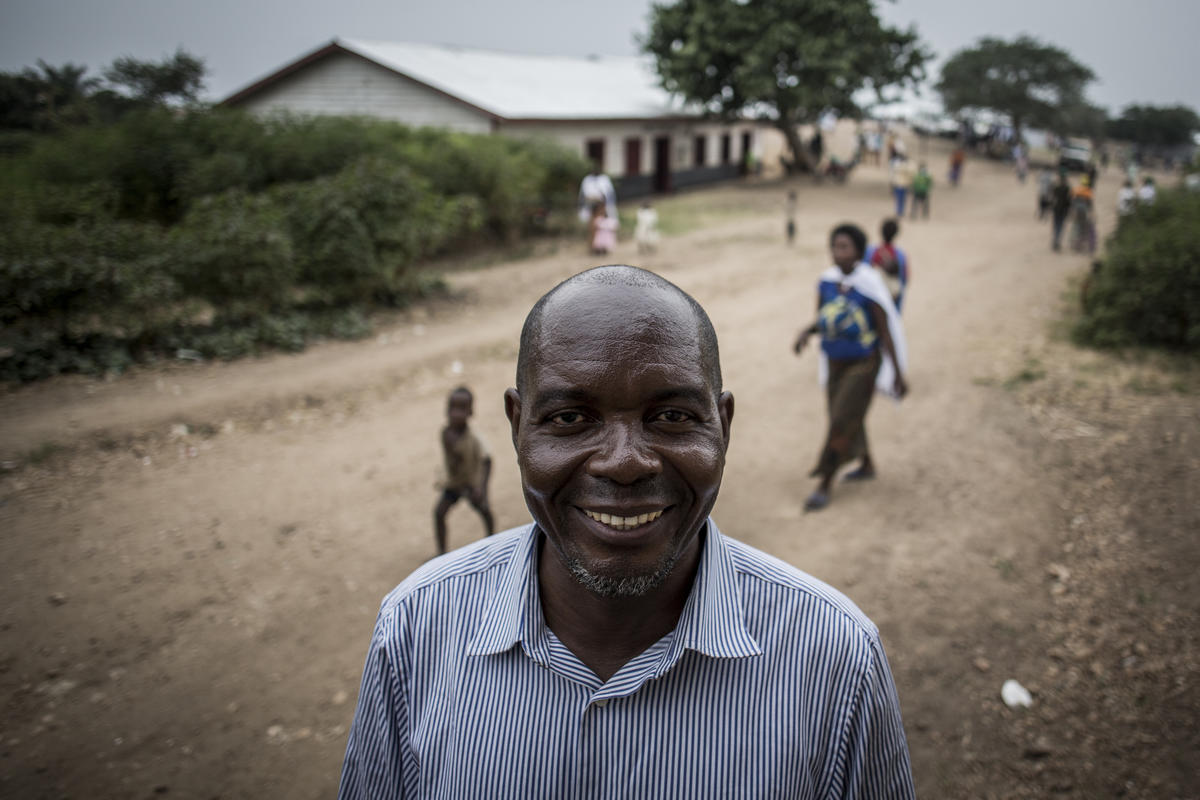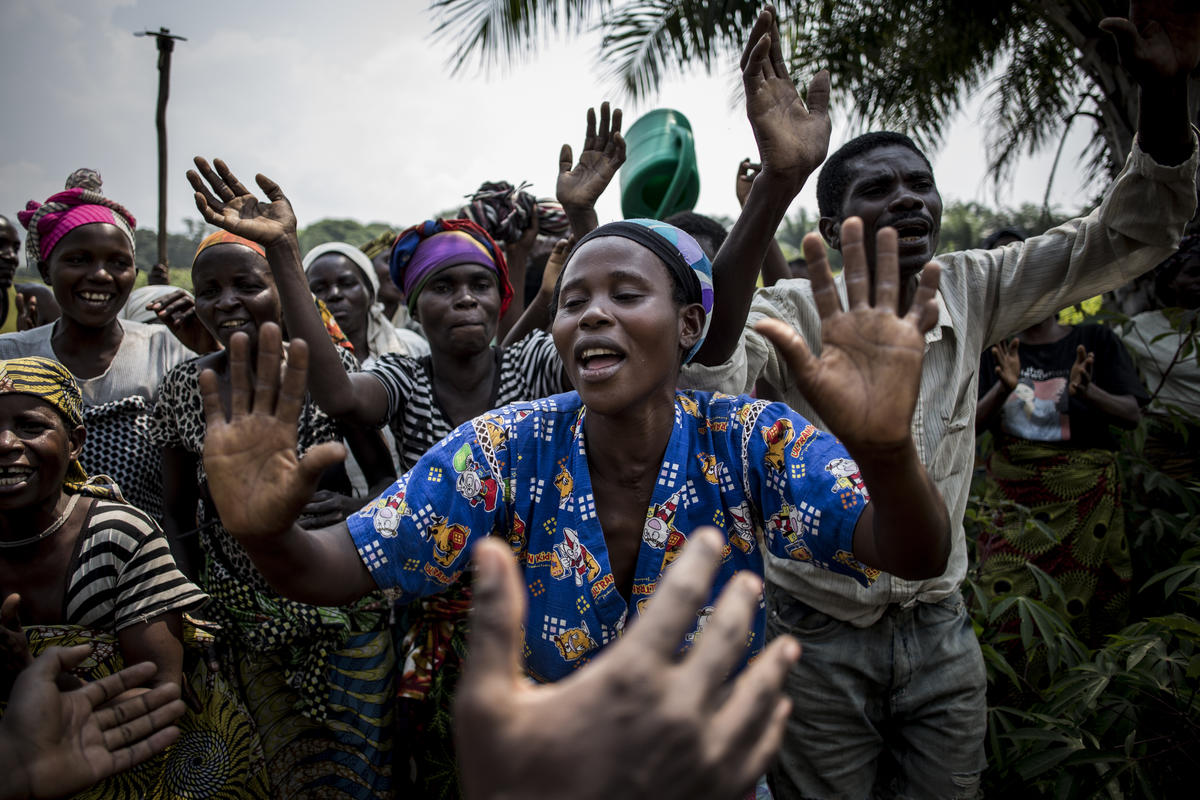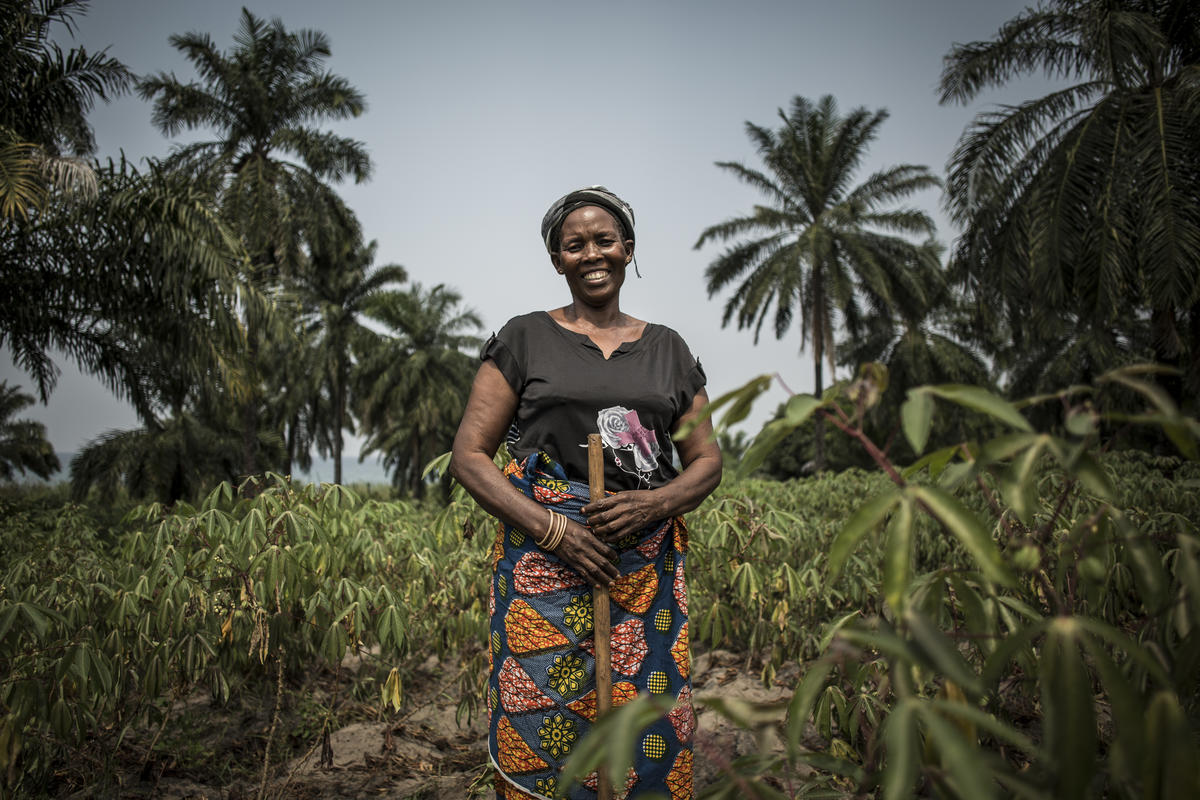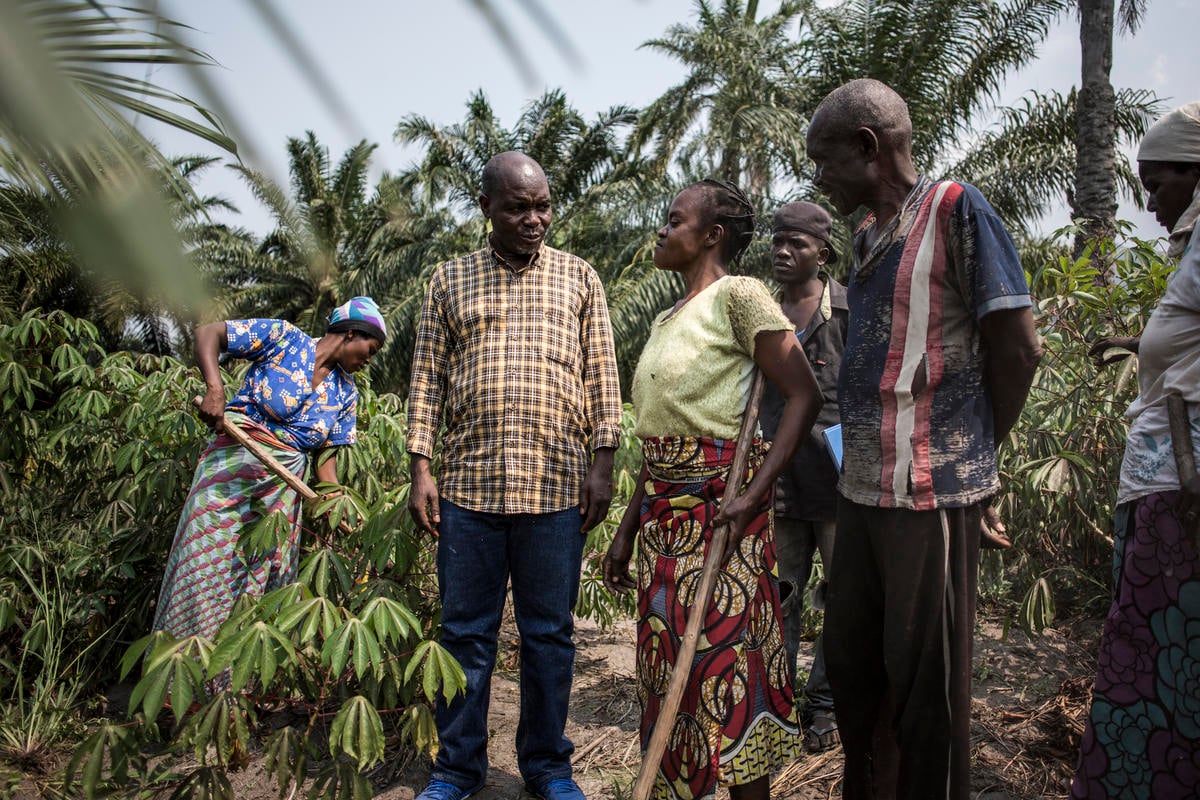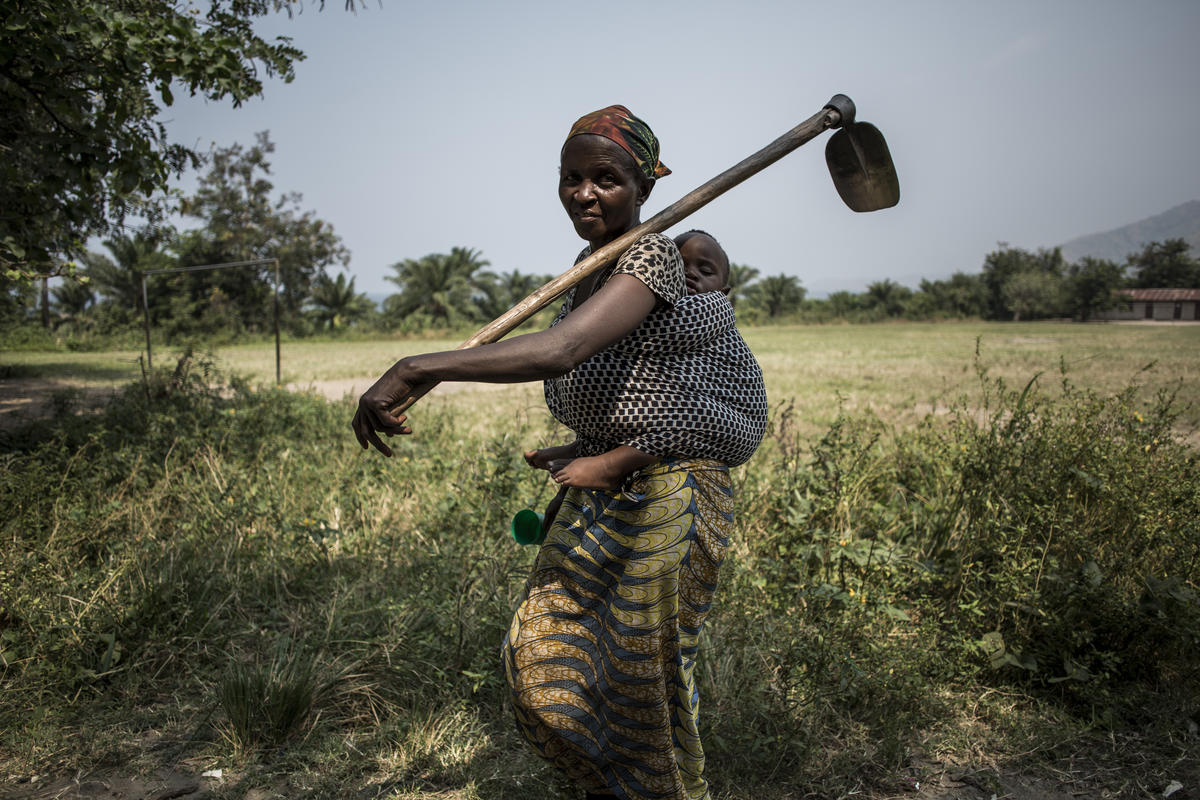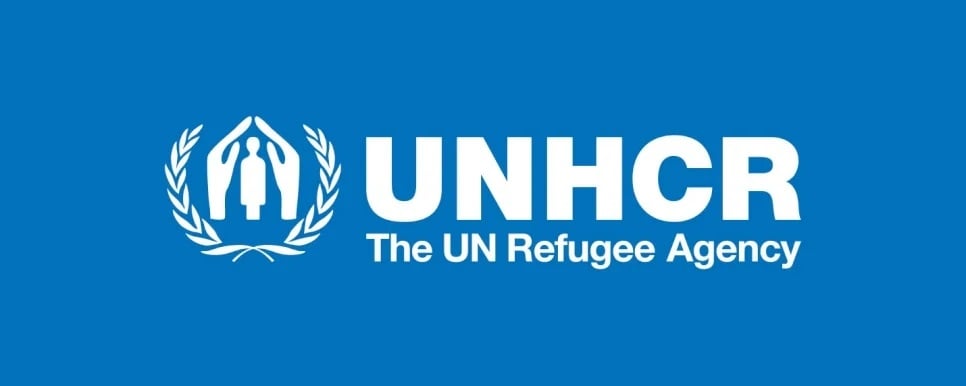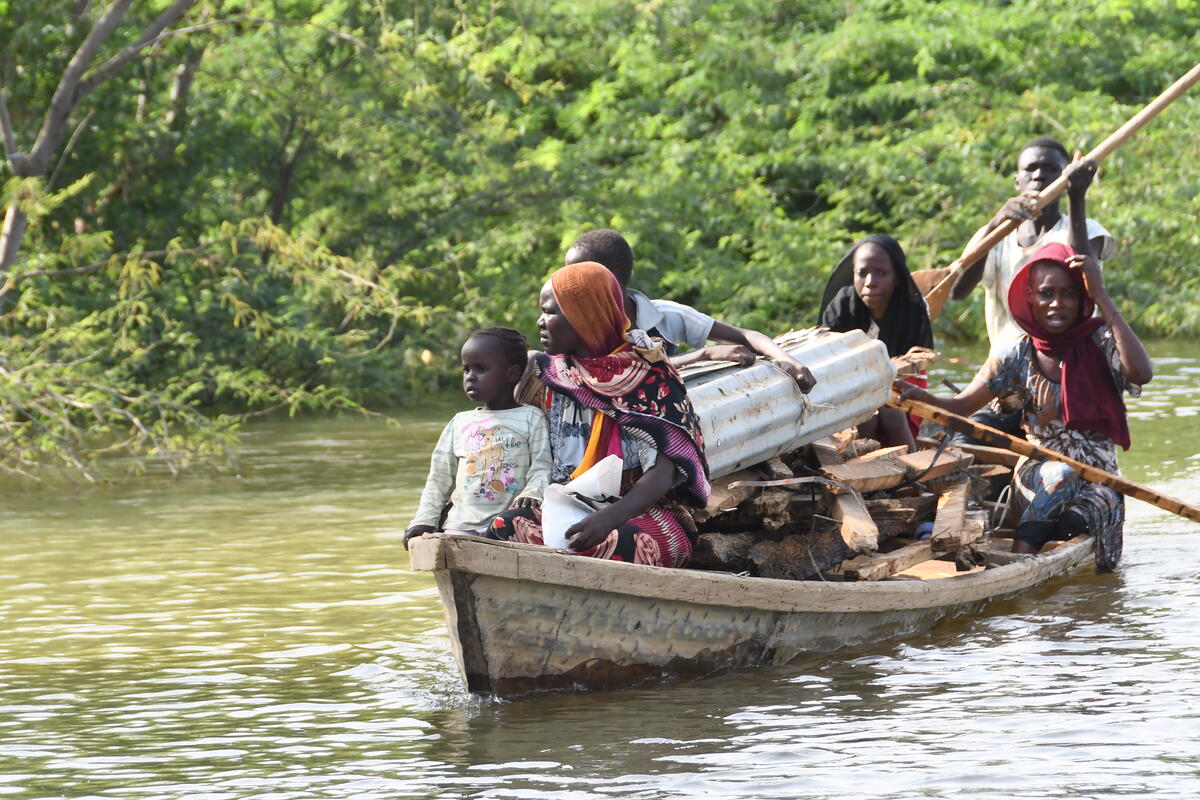Congolese activist dedicates his life to fight for the displaced
When Evariste Mfaume visited a communal farm in eastern Democratic Republic of the Congo one day in June, the women stopped work and greeted him with songs and dancing. A field of bright green cassava plants was the fruit of their labour, but this could not have happened without him.
“We are so grateful to Evariste because he worked really hard for us to get this farm land,” says Ungwa Sangani, a Congolese farmer.
For years, Mfaume, 46, has been championing the rights of Congolese people displaced by conflict, but also for refugees and their host communities. He advocates that they be given land to farm to help them generate income and rebuild their lives.
For his work, he has been chosen as the regional winner for Africa for the UNHCR Nansen Refugee Award. The prestigious annual prize honours those who have gone to extraordinary lengths to support refugees and displaced people.
The winner will be announced the 2 October and receive the prize at a ceremony in Geneva 7 October.
Mfaume founded Solidarité des Volontaires pour l’Humanité (Solidarity of Volunteers for Humanity) in his home region of South Kivu region in 2003. The region has seen years of turmoil and violence.
"I felt, within me that call, the human dignity, to channel my energy into doing something.”
“I started this work in a very tough political environment,” explains Mfaume, who has himself been displaced several times with his wife and children. “I have witnessed people getting killed, women getting raped and people’s property looted and destroyed,” he said. “But as a human being, I felt, within me that call, the human dignity, to channel my energy into doing something.”
He began to report on human rights violations first in Congo, then in neighbouring Tanzania, Burundi and beyond.
While in Tanzania’s Nyarugusu camp in 2005, he met many Congolese refugees who yearned for home but did not have places to return to.
“When you return to your country as a displaced person and you are unable to find a place where you can restart life, you are in a state of confusion,” he said.
The Congolese and refugee farmers from Burundi who work on the cassava farm are a case in point. A total of 150 farmers, among them, displaced people, have found a path to rebuild through the farm - one of three communal farms covering three hectares of land that Mfaume has helped set up with support from the local authorities and community.
Years of conflict have displaced 4.5 million Congolese according to OCHA, inside the country and forced over 850,000 more to flee over the nation’s borders. Congo also hosts over half a million refugees from other countries.
Mfaume has advocated with the Government to allocate parcels of vacant land in the bush for returnees, leading to the creation of so-called “peace villages” in Baraka, Fizi, Sebele and Mboko towns in South Kivu.
Since 2006, over 19,000 families have returned to these villages to rebuild their lives.
“The areas were forests. Seeing them now, developed and full of people gives me hope and strength to continue doing this work,” he says.
From his experience, Mfaume believes that equal access to land where refugees and the local populations can work together is key to peace and stability. It is an approach shared by the Global Compact on Refugees adopted by the UN General Assembly last year. Women are key to the work.
“The women are very enthusiastic,” he said. “When one faces a lot of difficulty, hope is very important.”
Claudine Nyanzira benefits from the farming project. She initially struggled in Lusenda refugee camp in eastern Congo after she fled Burundi in 2015.
“Life was very difficult because we didn’t have a lot of food or clothes,” says the 29-year-old. “So when this farming project started, I was so happy to be a part of it.”
The camp currently hosts nearly 30,000 Burundian refugees, over half of whom are under 18.
Nyanzira, who is seven months pregnant, is looking forward to the harvest that will help her family and the wider group.
“We will take the harvested cassava to the flour mill and the money we make from it will help us pay school fees for our children,” she adds.
While Mfaume has helped thousands like Nyanzira and Sangani through his activism, he has faced numerous challenges as well.
“When we fight for women’s rights, we often clash with the local traditional chiefs who feel we are giving women a different mentality that will make it hard for men to dominate them,” he explains.
Mfaume has also inspired others to join the cause, among them Jacques Asunge, who joined the NGO five years ago and has become the project manager.
“Evariste is very courageous and has the resolve to do what he sets out to do,” says Asunge. “His strength comes from his desire to help others, which I believe is something he’s had since he was born.”
“When I take my last breath, whatever I have done will be enough.”
Mfaume is determined to continue his life’s work and help others.
“I have a purpose within me and as long as I’m here, I will continue working,” he says. “When I take my last breath, whatever I have done will be enough.”
The Nansen Refugee Award is named after Norwegian explorer and humanitarian Fridtjof Nansen, the first High Commissioner for Refugees, who was appointed by the League of Nations in 1921. It aims to showcase his values of perseverance and commitment in the face of adversity.
You can read about the other regional winners of the UNHCR Nansen Refugee Award here.



